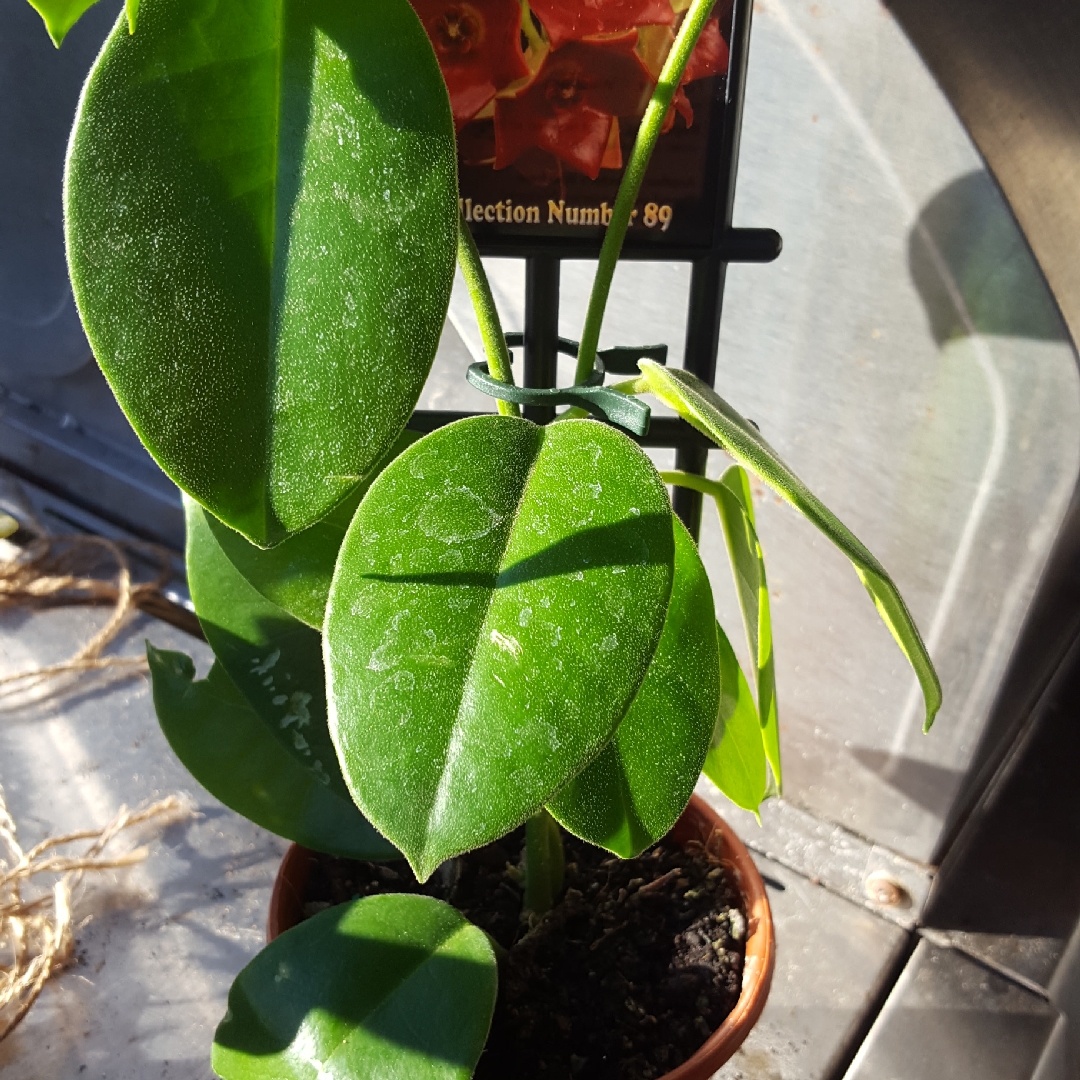
Hoya 'Sussuela'
Hoya
Hoya is an evergreen climber suitable for the conservatory. Attractive foliage and waxy flowers which can be highly scented, make these plants popular with indoor growers. Iin temperate climates they need to be grown in a warm bright room in the house or heated conservatory. They do best in good light where they can produce clusters of star-shaped flowers. 'Sussuela' flowers are dark maroon star shaped and the umbel can produce up to 10 flowers. Leaves and vines are slightly furry.
Contributed by @abbyfromthebeach
-
Partial shade
-
Very little water
-
Not Frost hardy
-
Free draining
Common name
Hoya
Latin name
Hoya 'Sussuela'
type
Flowering climber
family
Apocynaceae
ph
6.1 - 7.5 Acid - Neutral
Plant & bloom calendar
-
Best time to plant
-
When the plant will bloom
full grown dimensions
 0.50 M
3.75 M
0.50 M
3.75 M
Hoya 'Sussuela'
Hoya is an evergreen climber suitable for the conservatory. Attractive foliage and waxy flowers which can be highly scented, make these plants popular with indoor growers. Iin temperate climates they need to be grown in a warm bright room in the house or heated conservatory. They do best in good light where they can produce clusters of star-shaped flowers. 'Sussuela' flowers are dark maroon star shaped and the umbel can produce up to 10 flowers. Leaves and vines are slightly furry.
Propagation
From Early Summer TO Late Summer
Remove a leaf with part of the stalk on it and put into a pot filled with a suitable compost or soil and keep moist. Place in a light place, not in direct sunlight and allow to root.
Flowering
From Late Spring TO Late Summer
Highly scented clusters of star shaped pale pink to dark pink flowers that appear wax like.
Planting Season
From Early Spring TO Late Winter
Re pot cuttings when they have rooted. Place in a sunny, light position, but shade from direct bright sun to avoid foliage scorch. In winter a minimum night temperature of not less than 10°C (50°F). Sharply draining, well aerated compost is essential for hoya to thrive. This can be made using one part by volume orchid bark, one part peat free compost and one part coarse perlite. Alternatively, use cactus compost but add some extra perlite.













